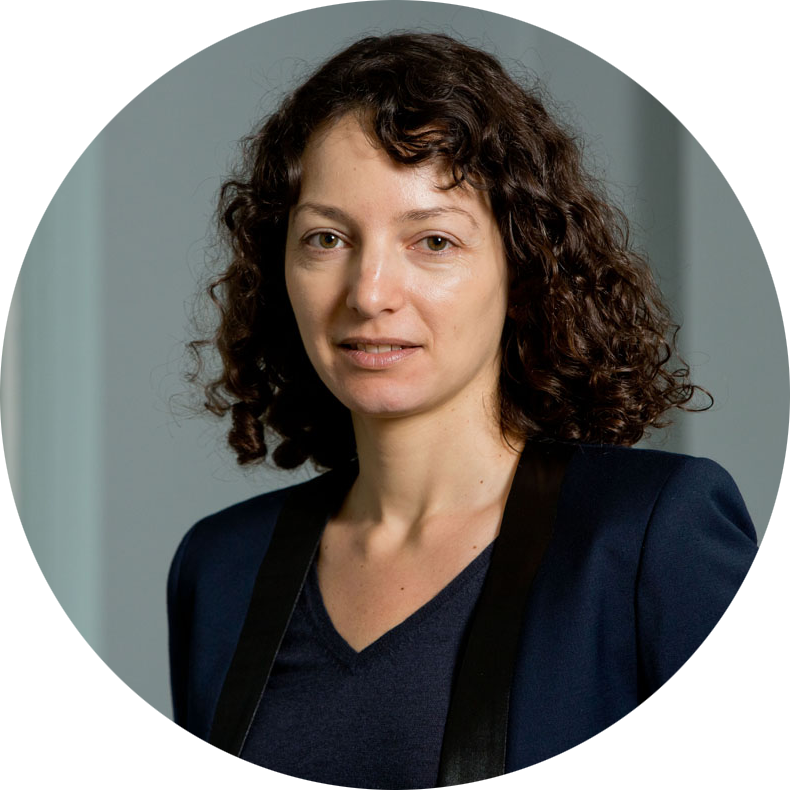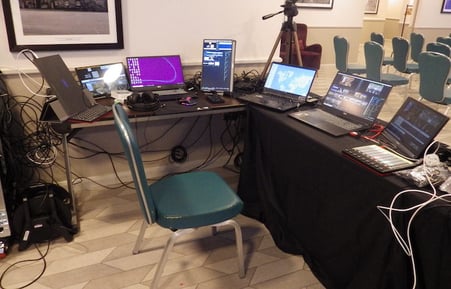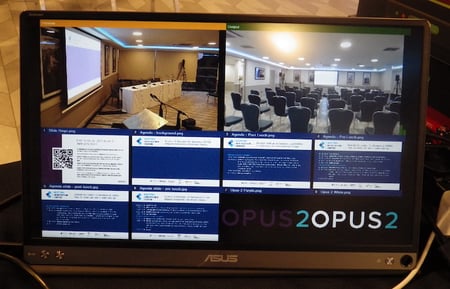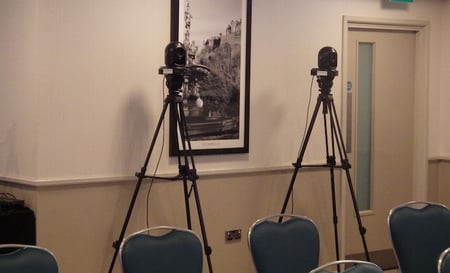Scottish Arbitration Centre takes advantage of Opus 2 Hearings for COP26 event
 Hélène Préchac
Hélène Préchac

Earlier this month, to coincide with the COP26, the Scottish Arbitration Centre hosted an event on dispute resolution and climate change. Leading practitioners offered insights into some of the most pressing issues on climate-related dispute resolution, discussing, among others, the changes to the practice of arbitration, from ESG and the push for greener arbitration.
As befits the COP26 spirit, the event was hybrid, with both panel and audience members joining in person and virtually.
As the event’s technology partner, Opus 2 was on hand to provide all the technology and expertise needed for the event to run smoothly, so that the organisers, the in-person and remote audience, and participants appearing from the Opus 2 London studio or from home could focus on the event and not have to worry about the tech.
So, how did Opus 2 deploy its hybrid hearings technology for the Scottish Arbitration Centre event and are there any interesting lessons that participants in a hybrid hearing should consider?
Similar challenges
With tight timings, multiple locations, unfamiliar venues, a host of potential technical difficulties, participants taking part in person and remotely, and last-minute changes of plan on the day, in this case, courtesy of the Covid-19 pandemic, the challenges that the Opus 2 technical team faced were very similar to those they can encounter when setting up for hybrid hearings.

Richard Page, Opus 2’s Head of Technical Projects, who co-ordinated the technical aspects of the event, explains:
“We want to make sure that, on the day, be it for a hybrid hearing or an event such as this one, everything has to work first time every time, as though we have worked in those venues a thousand times. A lot of work goes on in the background to plan and prepare hearings and events, delivering a quality managed experience leaving our clients able to focus on the event or hearing content.”
First things first
As with any hybrid hearing, preparation is key.
First came a scoping exercise. Working with the Scottish Arbitration Centre, the Hilton hotel in Edinburgh, where the event took place, and remote panel participants, the team had to tackle questions such as what technology and tables were available in the room, the internet speed, the lighting, as well as determining from which locations remote panellists would be appearing and what set up was available to them.
With the event taking place on Thursday 11 November, all the equipment, including spares, was sent to Edinburgh on the Monday. Two engineers followed the next day, working around other events at the hotel to inspect the room and check the lighting, the acoustics and anything else that could cause the event not to run smoothly. Late on Wednesday, they configured the room and tested all the equipment, returning early on Thursday to double-check everything.
In parallel, the team needed to accommodate remote participants. First, a studio was set up in the Opus 2 London office with professional lightning and microphones as well as broadcast-grade cameras, framed in such a way that participants could see other speakers and gage reactions in the room. Second, with the panellists appearing from home, the technicians tested their equipment and internet connections remotely, advising on where to position computers, microphones and lighting and getting everyone comfortable with the processes. Had it been necessary, high-grade equipment could have been dispatched as well.
Not as simple as a Zoom call

According to Richard, there are a lot of similarities between an event such as this one and a hybrid hearing, and similar challenges apply. The panel could be the judge, the speaking lectern is akin to witnesses, the lead counsel can be compared to the moderator, and the event audience is the same as a hearing’s audience.
Richard explained:
“All in all this was not much different to setting things up for a hybrid hearing, with multiple, and perhaps unfamiliar, venues and last-minute changes of plan. Further, some participants come to court, some are in the office and use their own kit, others are at home, some need better equipment, while others could even be somewhere else entirely, such as in a hotel room. The main difference was that hearings can take up weeks, when this event lasted one day.”
As anyone who has ever joined a Zoom call with a multitude of participants would know recreating an online experience as close as possible to an in-person situation is no mean feat.
For instance, managing the live sound, so that remote speakers sound as real as possible and as though they are in the room is hard to achieve and requires specialist knowledge and technology.

Richard concluded:
“We are specialists in the delivery of video services in hearing rooms, and we want to make it perfect. It’s not as simple as putting a couple of cameras in the room and plugging them into Zoom. We want the participants to listen to the content and not notice the tech. The experience should be as real as possible when using our video services. This is achieved with broadcast-grade technology, natural-sounding participants and a professional camera production which all adds to the realism experienced on the day.”
Can we help?
Please get in touch if you have any questions about anything mentioned in this article or how we can help you run your own hybrid hearing.

Subscribe to our insights
Receive our quarterly email newsletter with the latest news, events, and industry insights from Opus 2.
Complete the form to sign up
By clicking 'Submit' you agree to opt-in to receive Opus 2 Insight quarterly newsletter, and for Opus 2 to process your data as outlined in our Privacy Policy.
